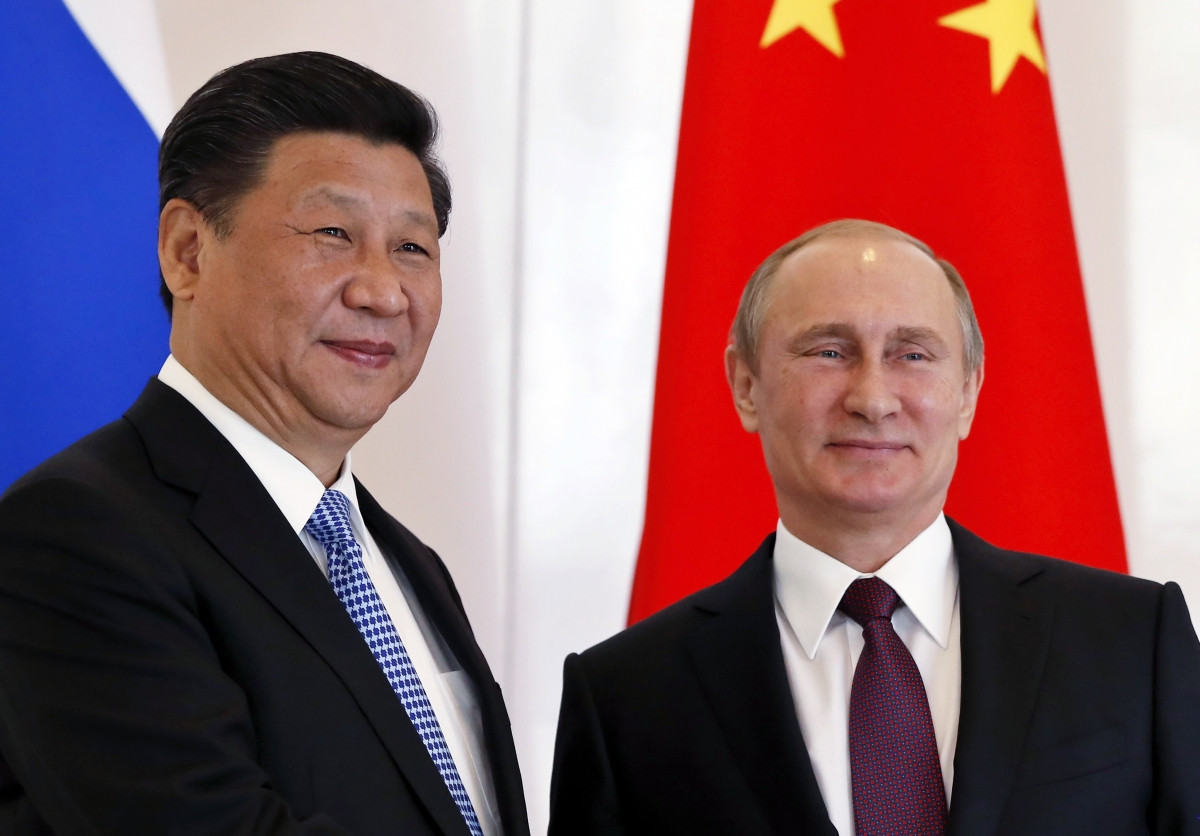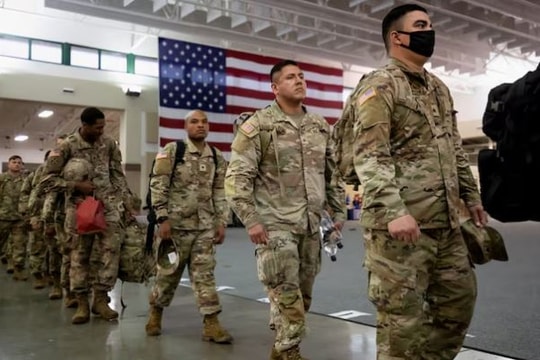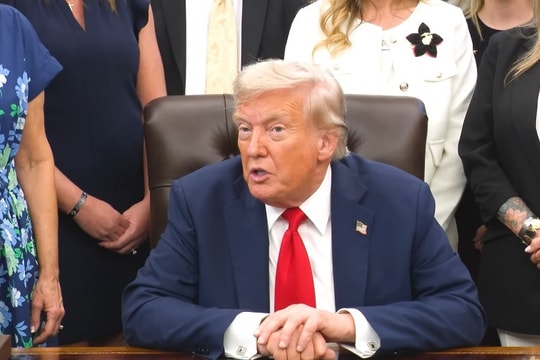'American factor' pushes Russia and China closer together
On the Ukraine issue, US policy has pushed Russia and China closer together, even though Moscow and Beijing are not on the same page and have opposing interests.
Since 1972, the Sino-Soviet split has been a cornerstone of American foreign and security policy. Any attempt to form a tentative agreement or even an alliance—whether tacit, inchoate, or written—directed against the United States has been thwarted. The 1972 visit to China by President Richard Nixon and National Security Advisor Henry Kissinger shattered such a Sino-Soviet alliance.
However, current priorities in US foreign policy not only allow but also promote Russia and China to move closer together - despite the contradictions and even confrontations between Moscow and Beijing.
 |
| Chinese President Xi Jinping and Russian President Vladimir Putin. Photo: EPA |
America is ignoring the conflicts between Russia and China
The two sides also disagree on several important aspects of climate change. On December 13, 2021, Russia vetoed a United Nations Security Council resolution that considered climate change a threat to international peace and security. China abstained on the resolution.
A month earlier at the UN climate conference, China signed an agreement with the US that Special Envoy John Kerry called a “roadmap for future cooperation” on reducing greenhouse gas emissions.
Cooperation between the United States and China may be ongoing, but in a video conference on December 15, 2021, Russian President Vladimir Putin and Chinese President Xi Jinping reassured each other of their mutual support and informed the world that the two sides have a common vision on important geopolitical issues.
Although the friendship between Russia and China is just that, not an alliance, the message is clear: both leaders are dissatisfied with the way America behaves in the world and are on the same side to end the era of American dominance.
For the US, this is seen as a major obstacle. The decline of the US in terms of its share of global GDP is obvious and irreversible. However, the US is still by far the most powerful country in the world. Therefore, there is still a possibility that the US's experienced diplomacy can prevent China and Russia from getting closer.
America has missed many opportunities.
US President Bill Clinton had a great opportunity to shape a new world order, similar to that of President Harry Truman in the immediate aftermath of World War II. Clinton was happy to enjoy America's leading position in the world, but he failed to realize that it would not last. His successors will pay the price for that omission.
Another opportunity came to President George W. Bush after the terrorist attacks of September 11, 2001. The world was ready to follow America’s lead when Washington called for global strength in a common effort against terrorism. Instead, Bush opted for a coalition of the willing—a narrow coalition that left out the interests of many other countries.
Yet in the first decade of the 21st century, the United States was undeniably the number one power. Bush made it clear that if necessary, the United States would use military force to achieve its ambitions. Both friends and rivals adjusted their policies accordingly. But many did not like it.
President Barack Obama has tried to win over friends in a world where friendships are less important than core interests. His efforts have been appreciated, but they have not been successful. Potential adversaries have begun to believe that the United States is backing down from its military might. That impression has led to America’s adversaries being more willing to challenge the waters where there is little risk of American military retaliation. Regional conflicts have grown increasingly out of America’s control.
Allies are beginning to doubt whether the United States is willing to follow through on its written and unwritten commitments to come to their aid. The US alliance system has weakened, opening the door for China and Russia – along with regional powers like Türkiye – to gain footholds around the world, while US supremacy gradually wanes.
President Donald Trump's foreign and security policies are unclear, making good policy a gamble and leaving the impression of a captainless ship.
When he takes office in February 2021, the door is still open for Joe Biden to reorient US foreign policy. Biden faces many challenges and problems such as China, Russia, Taiwan, Ukraine, Iran and North Korea. These problems can only be solved if he is willing to decide what America can accept, how Washington will respond to foreign crises and what his big goals are for America and the world.
If it can do that, every problem will have a solution; if not, Mr. Biden will be stuck in a quagmire. The fundamental question is whether the way America sees itself matches the way other countries see it, and how the balance of power will change.
Russia is not the Cold War Soviet Union
One of the most prominent issues today is Ukraine. Russia continues to assert its right to block Ukraine’s NATO membership and to limit NATO’s presence in Eastern Europe. Western countries tend to view this confrontation as a relic of the Cold War, in which the United States, its European allies and NATO faced off against the Soviet Union – now Russia – and China remained neutral. But the Cold War is over, and the prospects for such a solution seem slim.
Russia and China's interests in Ukraine's future differ strategically and economically. Russia's concerns about a potential threat from Ukrainian territory have little to do with China's.
Economically, the two sides have opposing interests. Russia is keen to get its hands on Ukraine’s resources. China will not let that happen; Beijing imports iron ore, grain, oil, and ferrous metals from Ukraine to diversify its supply chain and does not want a Russian takeover. More than 10 years ago, China and Ukraine signed a strategic partnership. On the 10th anniversary in June 2021, both sides emphasized the relationship.
However, US policy has pushed Russia and China closer together on an issue where the two countries disagree. Washington has missed an opportunity to exploit the divergent interests between Moscow and Beijing./.





.jpg)


